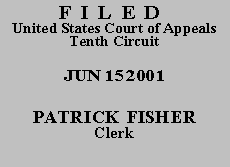

| TINA ARMSTRONG,
Plaintiff-Appellant, v. LA QUINTA INNS, INC., a Delaware corporation, Defendant-Appellee. |
|
In this diversity case, plaintiff Tina Armstrong is appealing the district court's entry of judgment in favor of defendant La Quinta Inns, Inc. under Fed. R. Civ. P. 50(a). Our jurisdiction arises under 28 U.S.C. § 1291. We affirm.
Plaintiff checked into a La Quinta Inn in Amarillo, Texas, on the afternoon of June 28, 1998. Plaintiff alleges that, after she located her room and was leaving the room to return to her car to get her luggage, an unknown man pushed her back into the room and sexually assaulted her. Plaintiff subsequently filed a diversity action against defendant in the United States District Court for the District of New Mexico. Plaintiff asserted a premises liability claim against defendant under Texas law alleging that defendant was negligent in failing to provide adequate security at the hotel and that defendant's negligence was a cause of the sexual assault.(1)
Plaintiff's case proceeded to trial before a jury on June 7, 8, and 9, 2000. At the conclusion of plaintiff's case-in-chief, the district court found that no reasonable juror could conclude, under Texas law, that defendant should have foreseen that a sexual assault or other similar violent crime was likely to occur at the hotel. Relying on the decision of the Texas Supreme Court in Timberwalk Apartments, Partners, Inc. v. Cain, 972 S.W.2d 749 (Tex. 1998), the district court therefore granted defendant's motion under Fed. R. Civ. P. 50(a) for judgment as a matter of law.
Plaintiff argues on appeal that she put forth sufficient evidence of prior criminal activity, both at the hotel and in the immediate vicinity, to establish a prima facie case of foreseeability under Timberwalk. We have conducted a de novo review of the district court's decision to grant defendant judgment as a matter of law, and we affirm for substantially the same reasons set forth in the district court's memorandum opinion dated June 13, 2000.(2)
Accordingly, the judgment of the United States District Court for the District of New Mexico is AFFIRMED.
Entered for the Court
Circuit Judge
*. This order and judgment is not binding precedent, except under the doctrines of law of the case, res judicata, and collateral estoppel. The court generally disfavors the citation of orders and judgments; nevertheless, an order and judgment may be cited under the terms and conditions of 10th Cir. R. 36.3.
1. Because the district court's jurisdiction is based on diversity of citizenship under 28 U.S.C. § 1332(a)(1), we must apply state law to the substantive issues on this appeal. See Peck v. Horrocks Eng'rs, Inc., 106 F.3d 949, 952 (10th Cir. 1997). The district court applied Texas law to plaintiff's substantive claims, and the parties have not challenged the applicability of Texas law on appeal.
2. Plaintiff also argues that the district court erred in: (1) refusing to allow her liability expert to supplement his expert report and testify regarding defendant's security manual; (2) refusing to allow into evidence certain deposition testimony from defendant's corporate security director; and (3) refusing to allow into evidence certain deposition testimony concerning drug use on the hotel premises in March of 1998. We hold that the district court's evidentiary rulings were not an abuse of discretion.